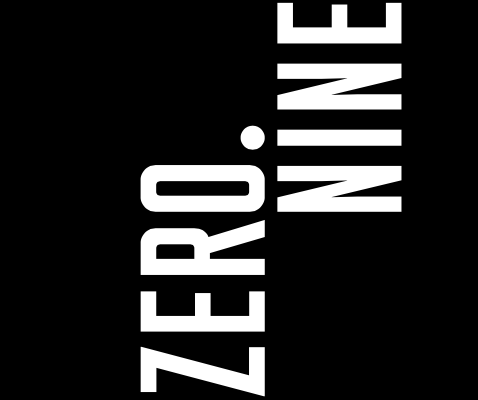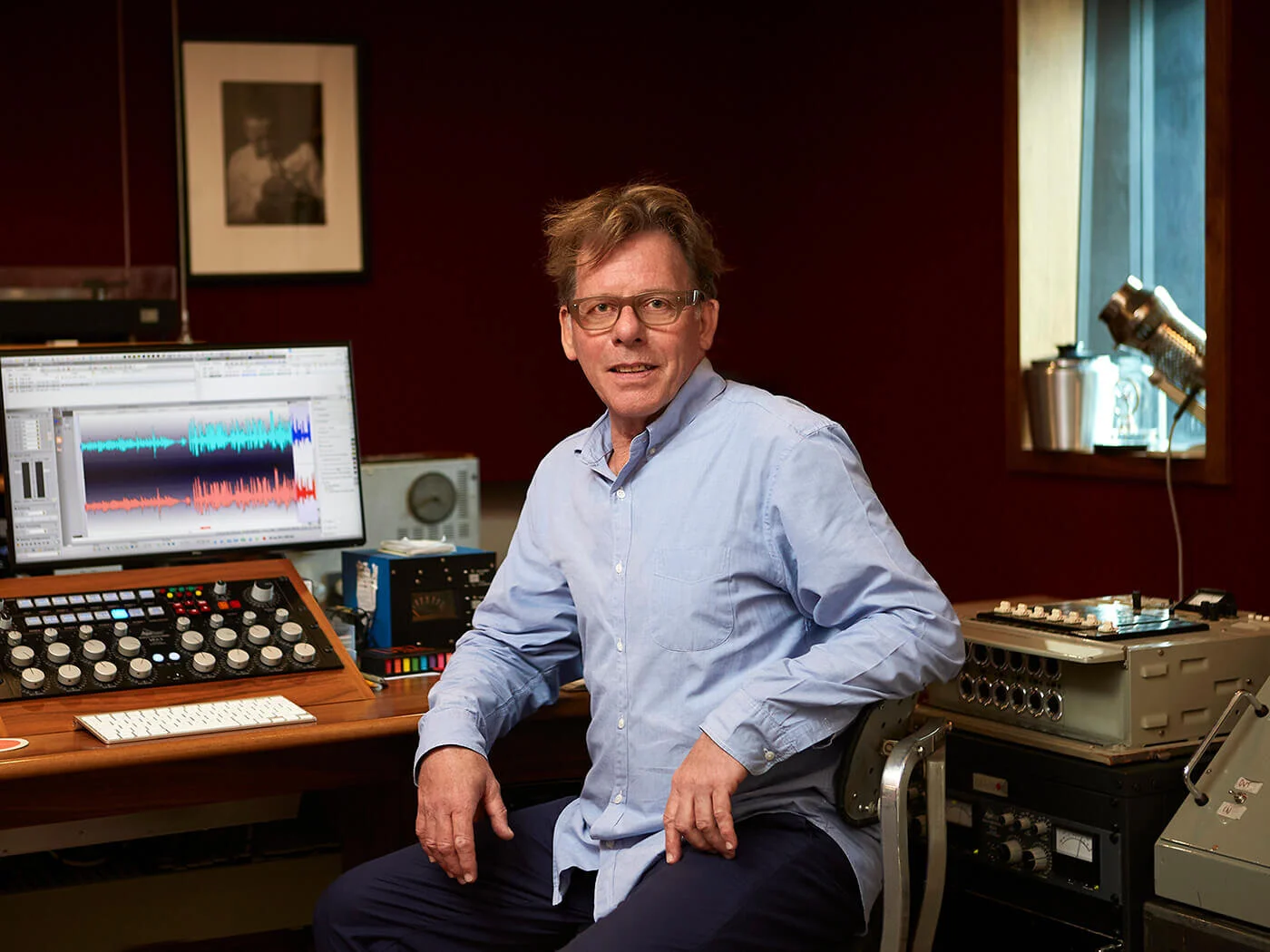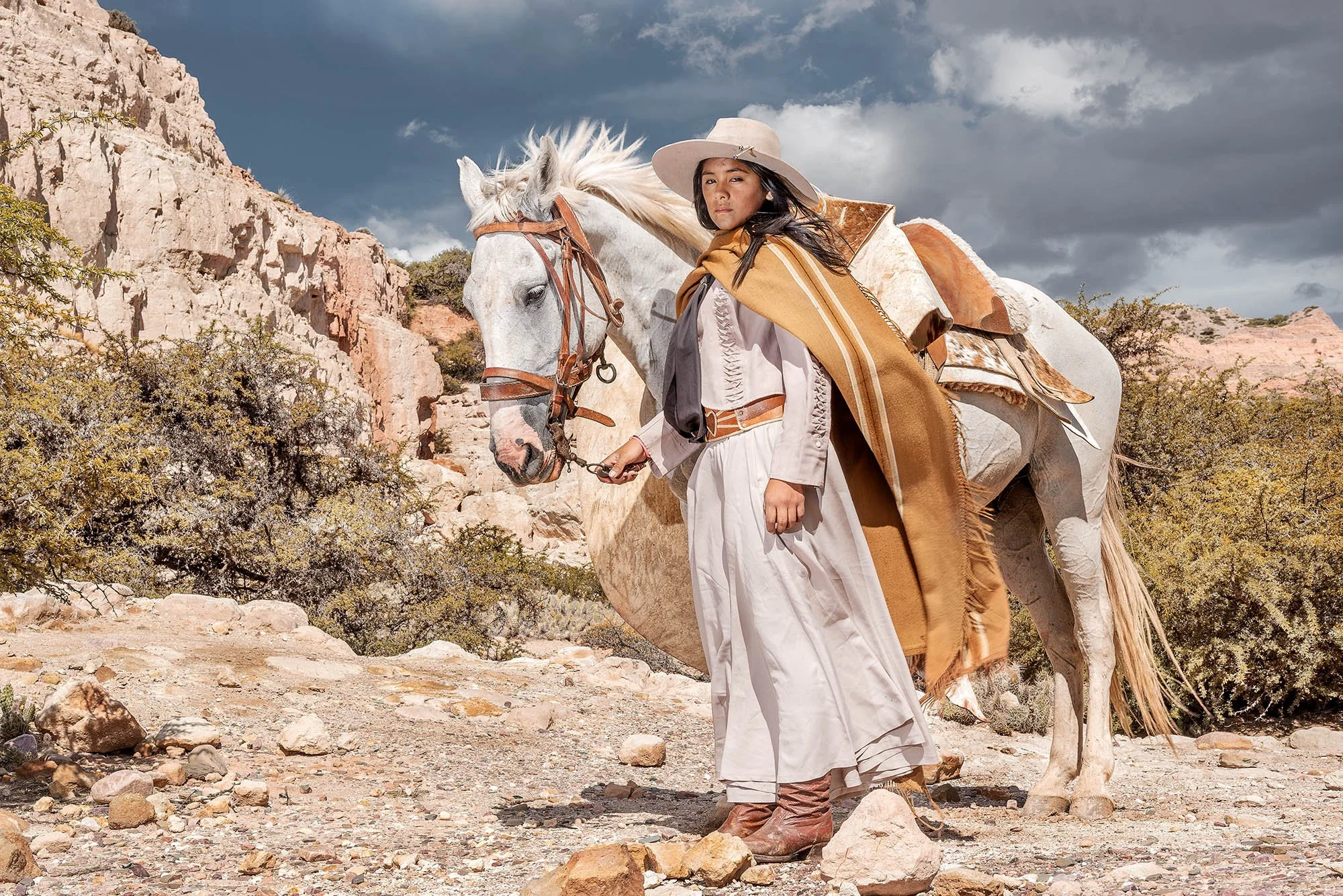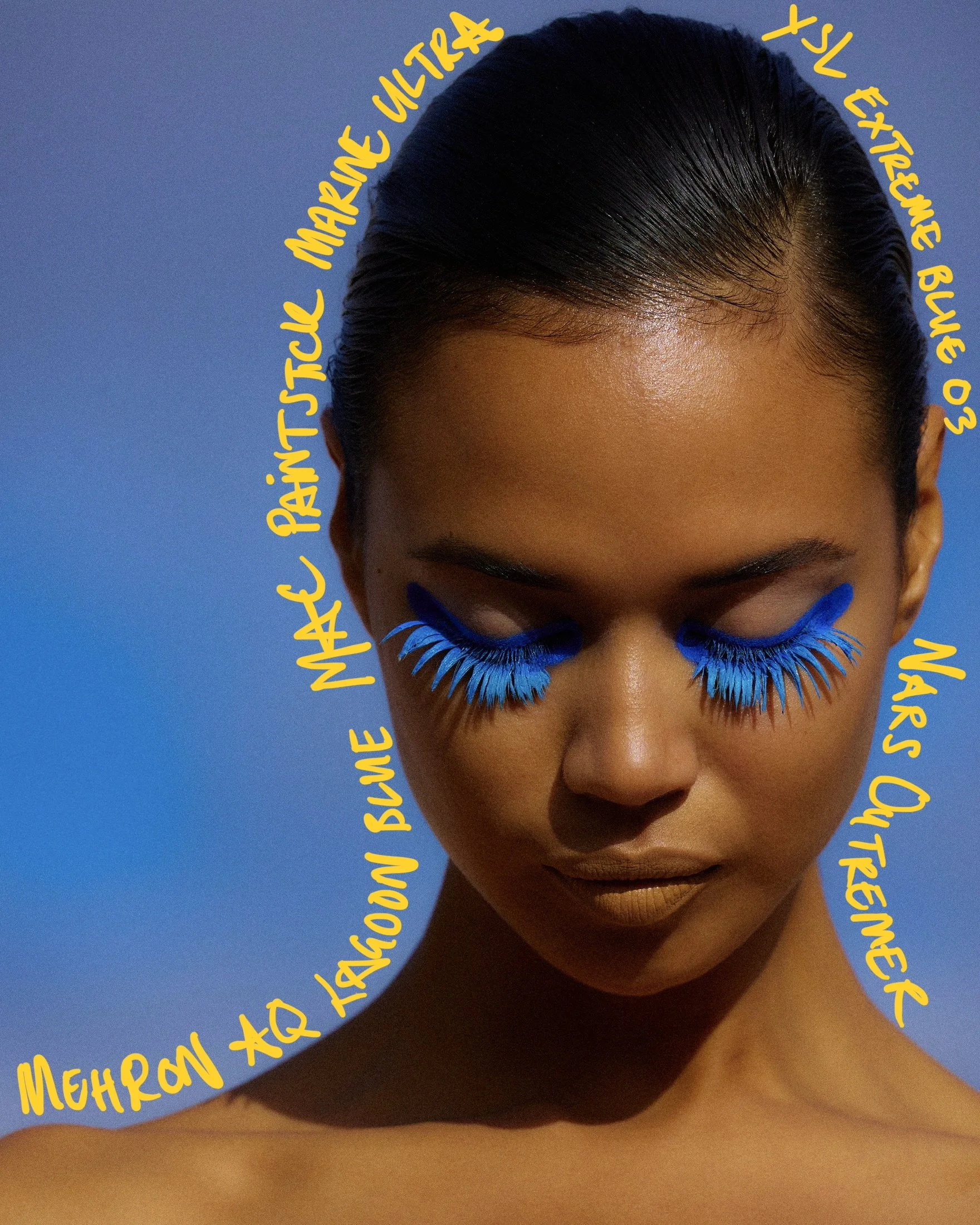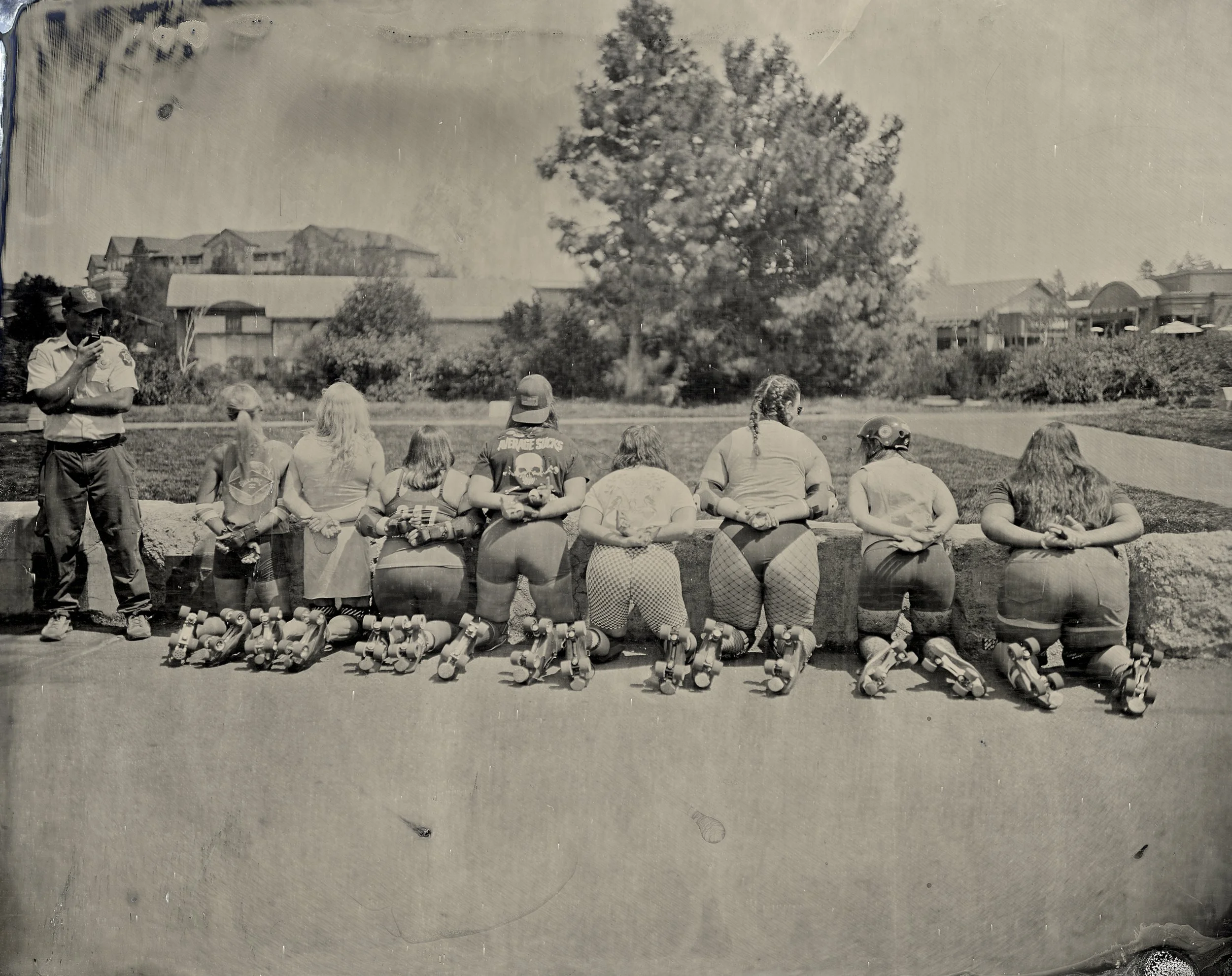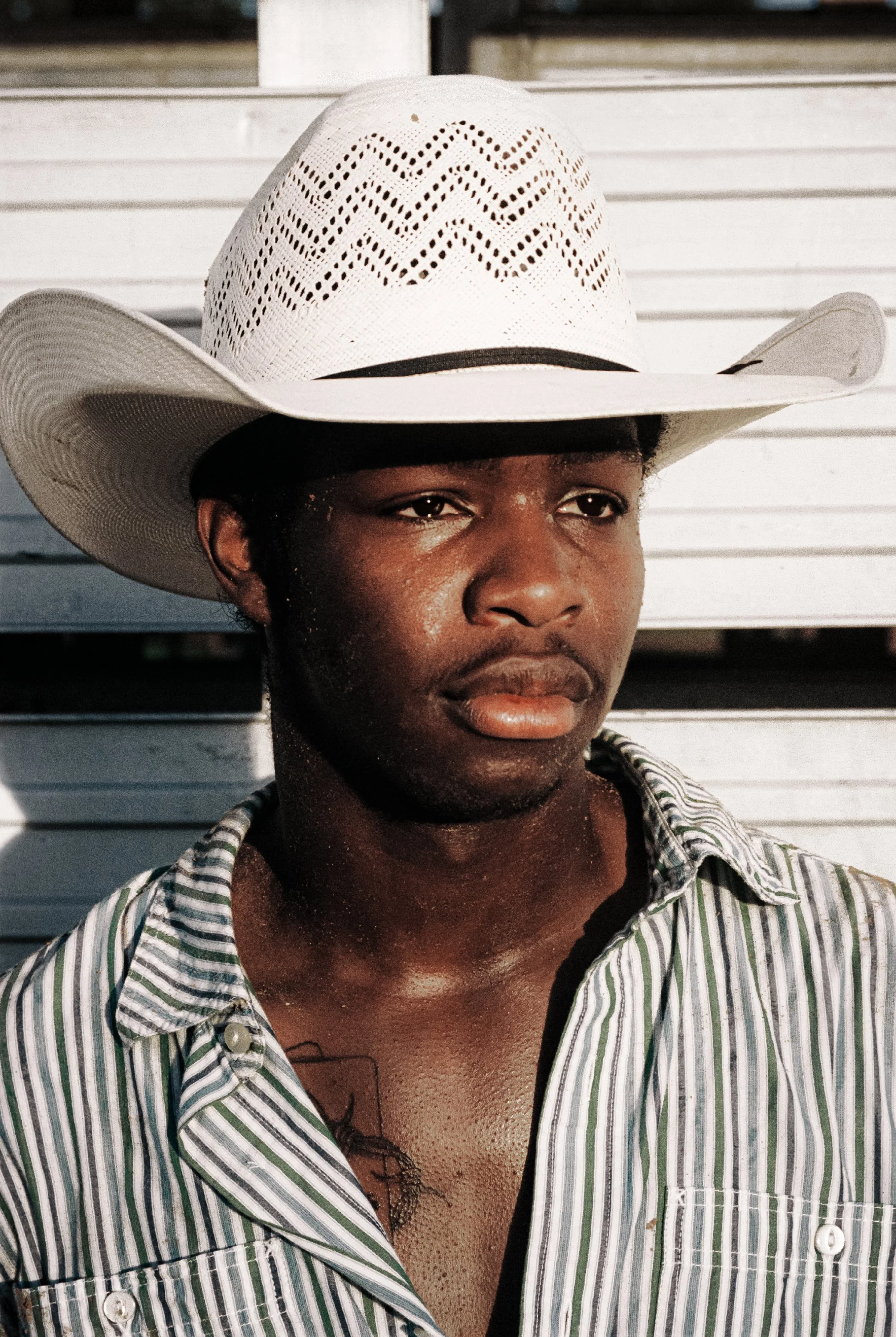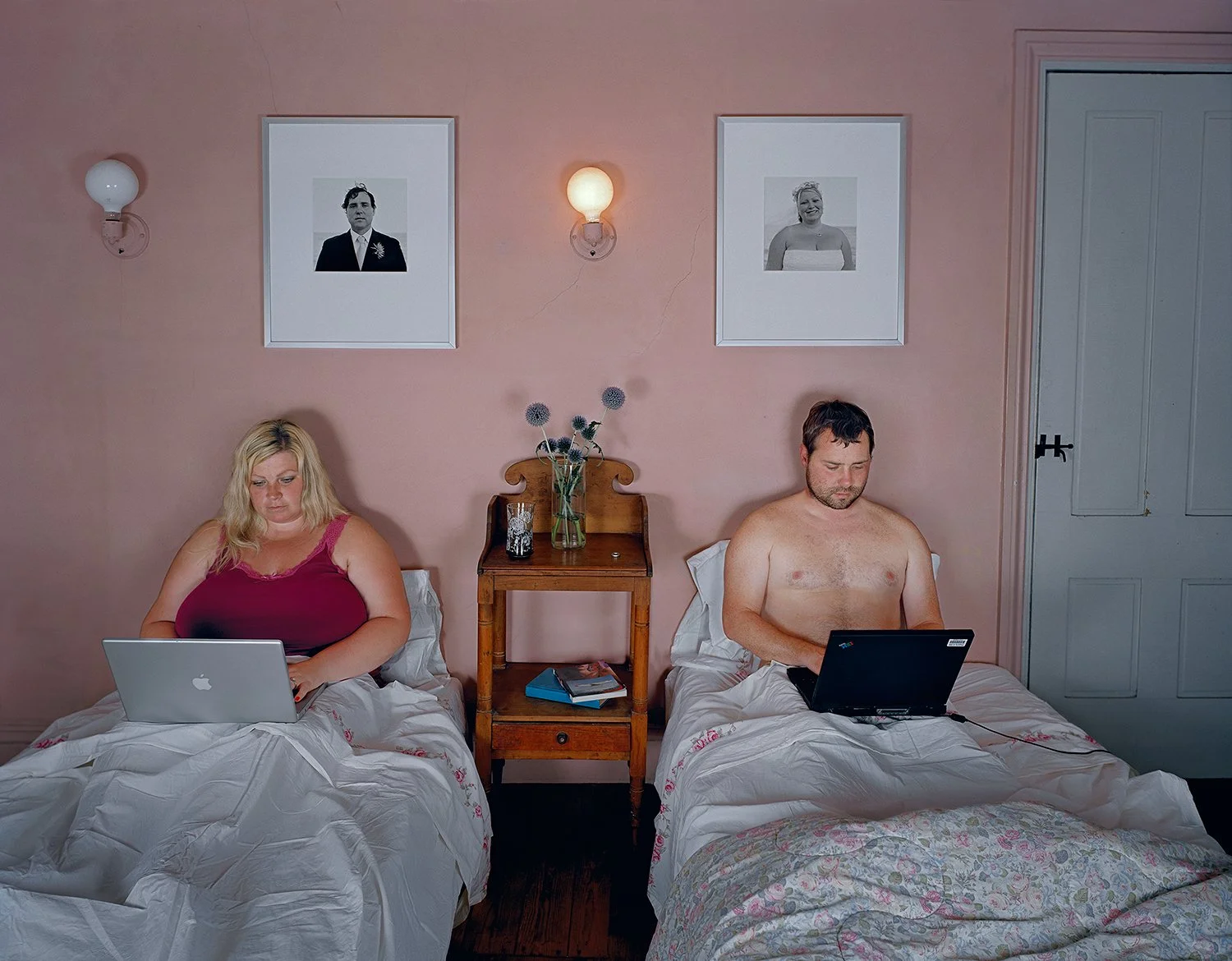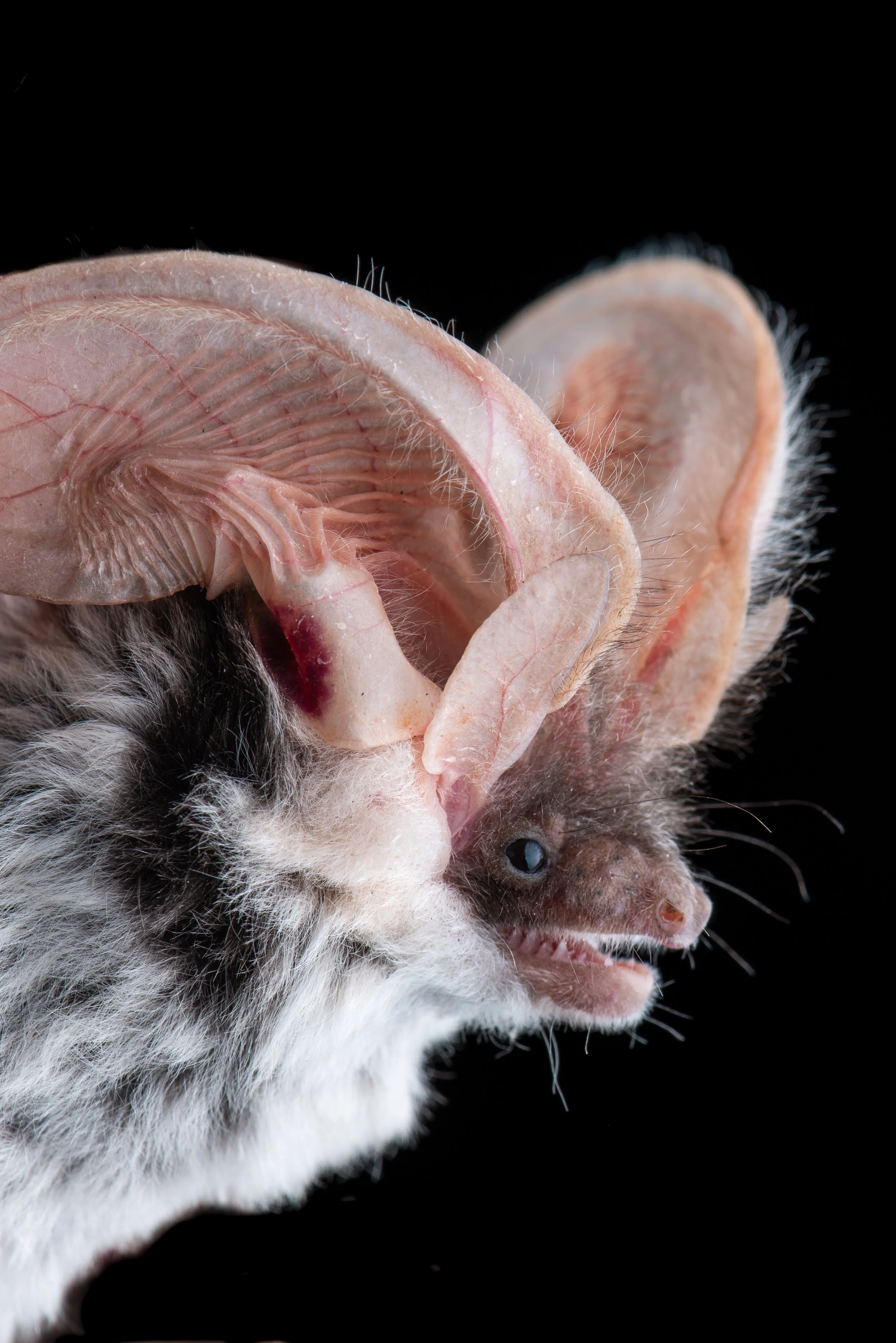In conversation with Dom Goldsmith
Best known for his band, HÆLOS, the London based producer talks to us about his musical upbringing, latest projects, and his new record label, Indigo Kin.
Interview by Daniel Vildósola, Photography by JC Verona, Photo assistant Orrin Saint-PierreHow do you describe yourself as an artist?
I don’t. I would describe myself as a creative person. I really enjoy making things. It could be anything from like painting the walls in my house to cutting up a book and making a collage to make use of a spare picture frame. I enjoy making stuff. But to answer the question; I don't really view myself as an artist, I feel like a fraud if I do that, so I don’t…
“I don't really view myself as an artist, I feel like a fraud if I do that, so I don’t…”
They say that music chooses you. When did music choose Dom Goldsmith?
When I was seven or eight years old, I remember being in the car with my mom. Occasionally a song would be playing on the radio; the song would go to another next section and it would just feel wrong. At the time, I didn't recognise what that was but I suppose that was the beginning of my journey into songwriting because that's essentially what I was doing. I was listening to someone else's music and thinking, “That's not where I would go.” I suppose the conscious choice to start was when I picked up the violin and trumpet. When I was eleven years old, I got a guitar which I really enjoyed playing. I think I learned “Song 2” by Blur first. That must have sounded absolutely awful. I'm sorry to any neighbours. I got an eight track when I was 14 — the Boss BR 1180. Which is like a CD ROM burning eight track, which is really cool. When I was nineteen, I got in the studio with the amazing producer, Hugh Padgham. He has so many Grammys that one of them was a broken and he used it as a doorstop. I suppose that's the bar. That's what you're looking to achieve.
Boss BR 1180
Hugh Padgham
As a producer in your own right now, you have a pretty distinct sound. Which artists have influenced you the most?
Another producer that I worked with quite a lot, Mark Ralph. A lot of my synth work got refined with him while I worked on a record with him. He's definitely been really influential for me. My segue into electronic music and enjoying analog sounds and stuff was Radiohead. I mean, pretty cliche. They were my favourite guitar band in my teens and when Kid A dropped I was like, “What's the Kaos Pad? What's
the Prophet Five? Yeah, I'll have some of that. That sounds great!” I never got one because they're really expensive but realising that there were other reasonably priced analog synths like a JX8P, for example, breathed life into that side of the process for me.
What do you listen for when you hear a record for the first time?
It's quite simple. We've heard pretty much every single chord progression 1000 different ways, certainly in pop music. So if something can sound fresh and feel like something you haven't heard before, that's what keeps me listening. That's what blows my lid off when I listen to something and think, “Whoa, how is that made? What was that made with?" I like electronic music that you are in the room with. It's that sense of reality that one can inject into electronic music that really interests me. When it feels like it's in a real space in a real room — that's the trick that my favourite producers do e.g. Caribou, Fourtet, or Jon Hopkins. There is electronic music that feels real and that's really important to me. On that note, certain software synths do have a character of their own that you can't get from any outboard synth. There are certain things you can do with ones and zeros that you just can't with oscillators and subtractive synthesis. When it comes down to it, I don’t think such a thing as a purely analog person or purely digital person. We're all both. I think there's certain elements of both disciplines which are incredibly powerful. They both take a lot of skill to harness. If something sounds beautiful, it doesn't matter how it's made.
“If something can sound fresh and feel like something you haven't heard before, that's what keeps me listening.”
What is Indigo Kin?
In a nutshell, it's a label. I started it with Matt King, who was HÆLOS’ A&R previously while we were with BMG. The label started as a vehicle to release my solo electronic music, but through conversations with some of the other artists I’d been working with, it's blossomed from a simple idea into something which has quite big intentions. Rule one of Indigo Kin is that the environment comes first. Rule number two (after looking after the planet) is that artists come before anything else. The music industry has got to do better at being a positive place; a place that can change the world for good. It all stems from properly nurturing and looking after talent that the whole thing is built upon. We want to foster an ethos of total transparency and also shoulder all costs that would usually be recoupable to the artist. Meaning that the artist doesn't get saddled with huge debt. It means the artists we work with won't be selling their masters for the standard 23% after they've recouped. So idea is really simple. Artists receive half and all the costs are on the label side. That's it in a nutshell.
“The music industry has got to do better at being a positive place; a place that can change the world for good.”
Is there an aesthetic to the label musically? Who is on your roster?
It's a broad church of electronic music. At the moment, the two artists that we're working with are on both produced by me. One of the artists is called Bea. Just wait till you hear this woman's voice. She's a really kind soul and her music is intimate, and songwriting that inserts an exact image in your mind, kind of like a deep guided meditation can. Making this music with her over the last like year has taught me a huge amount, and I'm super excited for it to start coming out in Q1 next year. The other band we are working with is called Leoi. They're all doctors from Berlin — there's three of them and they've all got PhDs. The music is beautifully crafted and shares a nostalgia for that late noughties, indie electronica — think Animal Collective, Beruit, and Yeasayer cooking a Sunday roast with Erlend Øye.
When you’re in the studio, how do you know when a song is finished?
Yeah, it's never finished. It's a horrible dark art. I say ‘dark art’ with love and fear. It’s just difficult to know… sometimes you can get something literally to the point where you're doing mix prep and then realise that you can't fix a certain sound. So you take that sound out and then three sounds after that four fall off, which cascades into another three sounds that don't work. Then before you know it, you don't have a song anymore. You may be starting again, either with production or you're going back into rewrite a verse that doesn't quite work. Maybe that's being overly picky; certainly that's something I'm guilty of. The whole thing is completely subjective, there's no one way to do anything. Because there are really infinite possibilities, you could argue that something's never finished. It's just a case of going “Okay, let go, move on.” and then start that next idea. It's definitely something that experience has made me a bit better about but it doesn't necessarily come naturally.
When you go out on the road and you start playing these songs live, do you find they take on a new life?
HÆLOS
Yeah, sometimes. HÆLOS get that a lot. We often have people saying “It’s even better than the record.” On one hand, that's really nice to hear because you want to be good live. But then you’re like, “Did I make a mistake on that recording?” I don't know, I think it depends if you're in a pessimistic or optimistic mood because the pessimist in you will be there thinking the record isn't good enough. The optimist in you will argue you made a record that's as good as you possibly could at the time and have reimagined this for the road in a way that excites people even more. So they've come to see it because they liked it already. If you can surpass their expectations of what it sounds like live, then surely that's an excellent place really.
Will HÆLOS make a live album one day?
Yeah! When the time comes, we’d really love to make a ten year anniversary release of Full Circle. We would reimagine that whole record again for a live album.
On that topic. Do you miss playing live?
HÆLOS – Any random kindness
I've got a bit of a weird relationship with touring. In the past I was maybe a little destructive. Although I don't love touring, I have realised, in 2020, that I really miss playing live. There's something that happens when you're on stage with your friends and you're all in the pocket. It might happen for a moment, and then another moment, and then it's gone again. It's so transient how it can occur and then disappear again like it was never there. When you're so in sync with people; that sense of togetherness; I miss that feeling a lot, whatever that is. I don’t miss the seventeen hours of wasted time every day either at airports, motorways, load ins, or questionable restaurants. It’s difficult. I think it's all about finding something more productive to do in that down time. Saying that, it did allow us to look around and have an awakening about the world around us in 2015. Our album, Any Random Kindness, was massively informed by climate change. We wanted to express how we felt on the matter but then would feel totally hypocritical when we would go on tour in the US in a diesel bus that’s always on even after you stop driving, the generators keep burning diesel to keep the lights on. The hypocrisy made me feel pretty horrendous. It’s difficult because how do you tour without equipment and transportation? Maybe you don’t. Maybe touring is wrong. But then again, people need it. People need music and communing with others in a space. It's like church for a lot of people. It's what church is, essentially. The good parts of worship for me are just that — communing with others with music in a space together.
”People need music and communing with others in a space. It's like church for a lot of people. It's what church is, essentially.”
Obviously 2020 has not allowed that at all and as a result, it’s having really gnarly effects on people. The environment and this question of how we talk sustainability is something which we need to look at with real care. There is a growing movement within the music industry. For example, there’s an organisation called Music Declares Emergency. People with good intentions trying their best to work this out. Artists often lead these kind of changes; I believe we can make it cool to do something and then everyone hopefully follows it. It’s ridiculous and crazy how effective it is. There’s something we're starting as well called The Fan Forest, which was a collaboration with two friends of mine. The simple idea is to raise funds to buy space that you then protect and reforest. It's very simple. It's being done and has been done everywhere but it just feels like the more people protecting the wild spaces the better.
What is next for HÆLOS?
A lot of new music. That's the first thing. We're also looking at a few exciting collaborations with other artists. It is something we haven't done a huge amount of so we are eager to see how it turns out. Having complete control of our destiny now, in terms of owning our masters and being completely independent, frees us to do whatever the fuck we want. We are planning on putting on a proper live streamed gig. Rather than just playing with an acoustic guitar in front of the phone, we’re gonna go in with some production and try and make it a real concert experience that people can listen to, headphones in at home, and have a really good quality streaming experience. We were very inspired after watching Nick Cave’s live stream from Alexandra Palace which they later made into a live album.
In the absence of playing in a room full of fans, something live is better than nothing right?
Keep an eye out on haelos.com
Listen here to Dom’s Top 10 songs at the moment.
